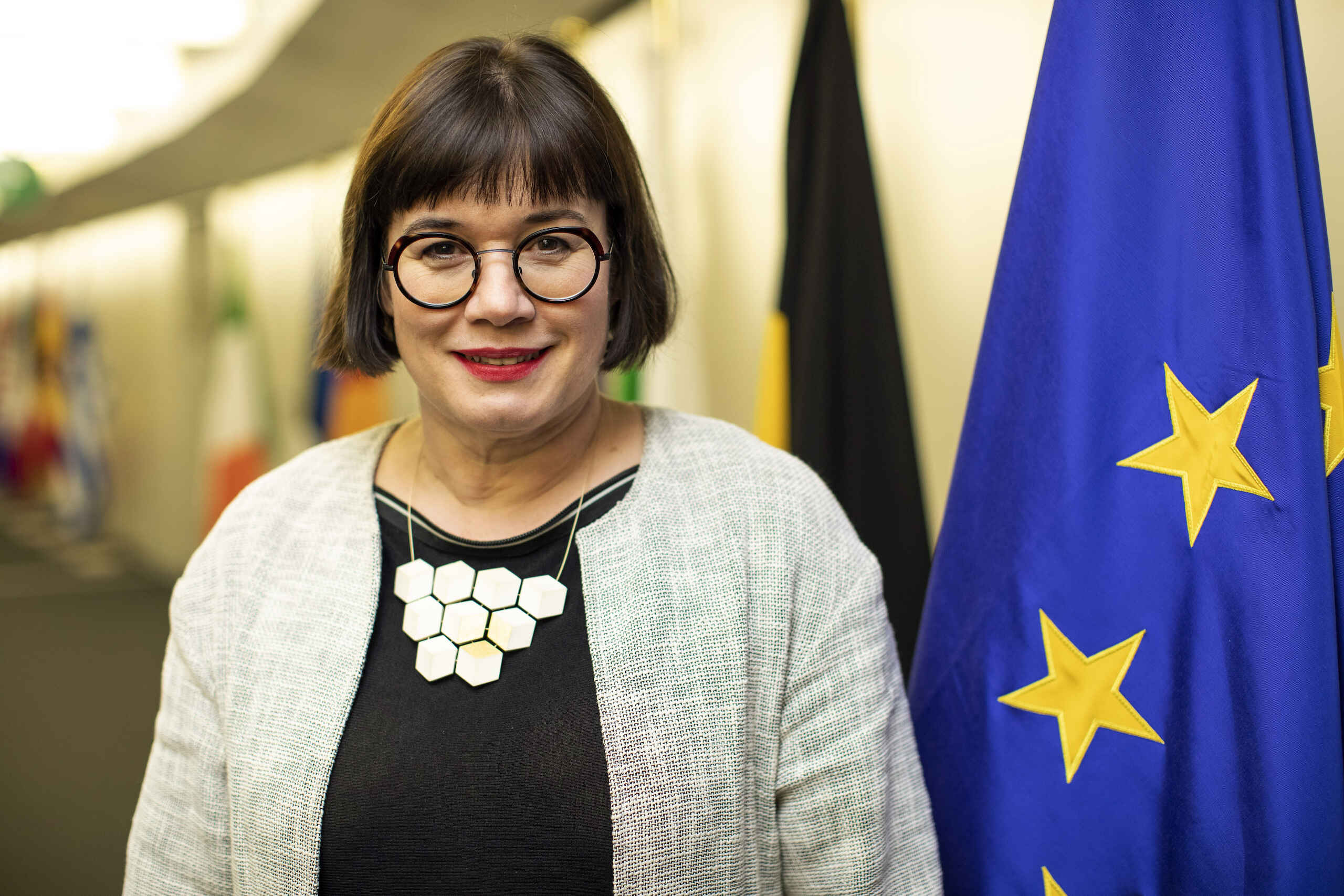
Power Play
Foto: Privat / Keine Credits
Power Play
How Europe must trade in times of protectionism
By Sabine Weyand
Power has long been an awkward term in the European Union’s vocabulary. But in today’s world, we need to come to terms with the concept of power. This is particularly because rules-based international cooperation has given way to power-based relationships. Countries seek resilience in international economic relations more than efficiency. This has not happened overnight, but it is now our reality. Economic competition between China and the United States is just one dimension of a growing geostrategic confrontation. The COVID-19 pandemic exposed the sensitivity of supply chains. Russia’s war in Ukraine has shown how interdependency can be exploited and weaponized.
The crisis of the multilateral trading system is a case in point. We are witnessing its progressive hollowing out: fewer cases are being brought to World Trade Organization’s dispute-settlement body. At the same time protectionism is on the rise. The number of trade restrictions imposed globally has skyrocketed since 2020 to a new high of more than 2,500 in 2022. Everything points to further fragmentation of the global economy, which in the worst-case scenario could wipe off the equivalent of Germany and France’s combined Gross Domestic Product (GDP) share of the world economy. The uncertainty we face is why it is even more important to put the EU in the best possible position to operate and succeed in such an environment. This is the logic underpinning the EU’s new economic security strategy.
First, the EU had to learn not just the language of power but also to develop instruments of power. We will always prefer to interact with others within a rules-based multilateral trading system. But we cannot necessarily rely on the rule of law being respected by everyone.
We have built an Anti-Coercion Instrument – the EU’s economic deterrent against practices that seek to alter member state policies through economic blackmail. And we are reviewing our screening of foreign direct investment for even greater efficiency in blocking third-country investments into strategic EU sectors where we assess security risks. We have stepped up our export controls to better prevent EU goods and technologies from creating security risks. We are assessing whether there are risks of leakage of export-controlled technology to destinations of concern via outbound investments. Our trade-defence tools, the new International Procurement Instrument and the new regulation to address distortions on the EU market aim to level the playing field and strengthen reciprocity
Our unprecedented packages of sanctions to respond to Russia’s war of aggression show what is possible when we all pull on the same rope. The strategic importance of EU unity should not be lost on anyone – it will make or break our geopolitical future. Second, our bargaining power comes from the strength, size and attractiveness of our economy. Without this, everything else fails. From military modernisation like Germany’s Zeitenwende to combatting climate change, nothing is possible without a sustainably strong and innovative economy.
There is a reason why our economic security strategy puts promoting our competitiveness first. And promoting a strong economy starts at home. This year we have given it an additional boost with the Green Deal Industrial Plan and our long-term competitiveness strategy. Trade policy contributes to these efforts by ensuring access to inputs we need for the green and digital transitions, by opening new export opportunities, by helping to create economies of scale and by defending the Single Market from unfair practices.
Third, we can most effectively pursue our objectives through openness and international engagement. This means including everybody, not just close friends. We remain the largest trading bloc in the world, accounting for 16.2 per cent of global trade. One in five jobs in the EU depends on trade. This is why we continue investing in our bilateral trade relationships. We already have one of the largest networks of trade agreements in the world and we are continuing to expand it. Negotiations with Chile and Kenya have recently been concluded. The agreement with New Zealand has just been signed and we are making every effort to finalize talks with Australia, Mexico and Mercosur, while advancing negotiations with India and a number of ASEAN countries.
The essence today is to have flexible approaches. The time of one-size-fits-all solutions is over. In certain cases, a traditional trade agreement will be the right approach. In other cases, we need other arrangements that allow us to focus on specific issues of mutual interest. Here our Trade and Technology Councils with the United States and India, our digital trade agreements, the Raw Material Partnerships, the Sustainable Investment Facilitation Agreements and other partnerships come in. Power on its own it is neither good nor bad. It is part of a dynamic game in the grander scheme of things. The challenge will be to continue rethinking trade in an environment that is in continuing power flux. This will need constant recalibration. Germany, as Europe’s biggest economy and a trade powerhouse, must be at the forefront of this debate inside the EU.

Sabine Weyand is the European Commission’s directorgeneral for trade